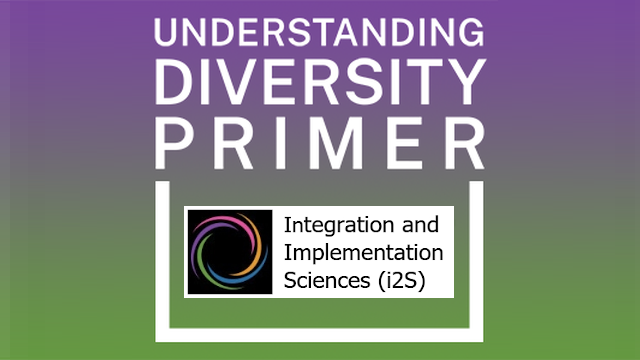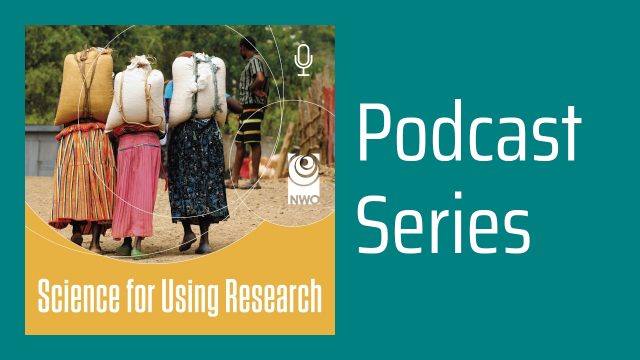
The future of knowledge management research
The recent decades have seen extensive research on knowledge and knowledge management. Knowledge management has become an independent academic field, but with a high degree of interaction with other disciplines.
A new paper1 presents ideas for future research in the area of knowledge management on the basis of a literature review. Linkages with other disciplines need to be taken into consideration, so the proposals for future knowledge management research are identified across the areas of library science, economy, philosophy, sociology, psychology, information systems, and management.
The paper is the keynote presentation by Dr. Joanna Paliszkiewicz at the International Federation of Library Associations and Institutions (IFLA) 2017 satellite conference New Directions in Knowledge Management. Dr. Paliszkiewicz is a Professor at Warsaw University of Life Sciences and is known for her expertise in knowledge management and trust management. An introduction to Dr. Paliszkiewicz and the text of an interview with her can be found on pages 4 and 5 of the IFLA knowledge management section June 2017 newsletter.
The paper begins with a discussion of the different definitions of knowledge management. This is followed by an exploration of gaps in the current body of knowledge and proposed research directions to fill these gaps, and then a summary.
Knowledge management definitions
Defining the concept of knowledge management is difficult. The various definitions include:
- Knowledge management involves capturing the knowledge, wisdom and added value experiences of members of the organization, making it easy to find again.
- Knowledge management is “a set of processes for transferring intellectual capital to value.”
- Knowledge management is “the process by which the organization generates wealth from its intellectual or knowledge-based assets.”
- Knowledge management is a systematic process for acquiring, organizing, sustaining, applying, sharing, and renewing both tacit and explicit knowledge from employees to improve organizational performance and create value.
- Knowledge management is “… an entity’s systematic and deliberate efforts to expand, cultivate and apply available knowledge in ways that add value to the entity, in the sense of positive results in accomplishing its objectives or fulfilling its purpose.”
- Knowledge management processes are valuable to help organizations to use what they already know and to work smarter and more quickly and to make more money.
- Knowledge management is a process of leveraging and articulating skills and expertise of employees, supported by information technology.
The interdisciplinary nature of knowledge management—propositions for future research
Library sciences
- Knowledge management plays important role in the work of librarians, especially in managing codified or recorded knowledge.
- The use and sharing of knowledge can improve the quality of service as well as the creation and maintenance of a learning culture.
- Research merging knowledge management and strategic planning should be conducted, for example applying knowledge management systems to strategic planning, and developing new strategic planning models in combination with knowledge management models. This can improve the quality of library strategic planning.
- There is a gap in the digital library project management literature in regard to the role of knowledge management in digital library management.
- As knowledge management focuses more on human issues like tacit knowledge and intuition management, a new set of skills and competencies are needed for librarians to work in the knowledge management environment.
- Librarians should promote a knowledge sharing culture through the initiation of communities of practice, organizational learning, change management, collaboration, management of best practices, and use of appropriate knowledge sharing technologies. Further research is needed to determine the effectiveness of these approaches.
- There are challenges for librarians related to the development of mobile applications and social media. There is a need to educate library managers in this area.
- Librarians have to acquire skills to keep themselves updated so as to cope effectively, intelligently, and objectively with knowledge management in libraries, and use information and communication technologies to equip libraries to provide better, faster, and pinpointed services to users.
Economy
- The concept of the “knowledge economy” started to appear in the early 1960s. From this time, a lot of researchers and practitioners have been trying to identify and explain the logic and mechanisms behind the economy in which knowledge has become very important.
- Case studies of national economies evolving into the knowledge economy are needed in future research to understand and explain it better.
- A better understanding of the critical factors that can facilitate or hinder successful development of the knowledge economy is needed.
- Research is needed in the area of knowledge transfer from emerging economies to more cost-effective locations, and the connection between knowledge transfer and transactional costs should be researched.
- Another important issue worthy of study can be to discern if the balance between globalization and localization relates to a balanced culture and how the balance between globalization and localisation influences the transfer of knowledge.
Philosophy
- One of the main concerns of philosophy has been to define what can we know.
- In this scientific area, it is important to develop “cognitive maps” of the organization. These maps can help managers to understand the organization and its environment. It can help also to locate information and knowledge.
- Another important issue is ethics. Ethics is described as behavioural codes that are regarded as good and right by individuals and the society at large. Ethical standards are rooted in teleology, deontology, and Aristotle’s Nicomachean Ethics (350BC). But ethics is not only a philosophical abstract theory but also a critical guideline in the collective or personal practice.
- Members of the organization should respect the collective ethical norms. Where favouritism rules, individuals are likely to punish the unfair member, e.g. by refraining from the transfer of knowledge. Fairness is practiced when the needs of both individuals and organisations are treated as equally important and members of the organization are treated as equals.
- Ethical issues are very important and further research is needed, especially in the area of trust building, fairness, organizational justice, and ethical organizational climate. A deeper study related to ethical aspects of knowledge management may focus on the power of managers over individuals.
- Another future research direction is to study the relationships between conceptualisations of ethical knowledge (as tacit knowledge and as explicit knowledge) and moral development.
Sociology
- The sociology of scientific knowledge has gained some recognition among sociologists.
- A research area of potential interest is the connection of social capital and knowledge management. Social capital constitutes some aspect of the social structure and facilitates the actions of members of organization within the structure.
- Social capital consists of three dimensions: the structural dimension, the relational dimension, and the cognitive dimension. The structural dimension is related to the overall pattern of connections between actors (who can influence others). The relational dimension focuses on relations people have (trust, respect, friendship). The cognitive dimension is related to cultural and societal norms. All of these dimensions are very important in knowledge management especially in the sharing of knowledge. Future research is needed to expand knowledge in this regard.
- Another important aspect related to sociology and knowledge management is working in groups and teams.
- It is very important to develop knowledge-oriented cultures in which the transfer of knowledge among individuals is provided. One option to create and develop a knowledge-oriented culture is through the use of groups, teams, and communities of practice within the organisation. This aspect also needs further research.
- The knowledge in an organisation is produced collectively. Usually, many intellectual tasks cannot be executed by a single individual, instead, they require the collaboration of multiple persons (team work). This means that knowledge management is becoming more and more a social activity.
- More research is needed which will link sociology and knowledge management.
Psychology
- Study in the area of psychology should explicate the complexity of knowledge transfer behavior.
- Researchers have emphasized how individual differences are important in the organization environment, but there is a need to expand the research related to the effect of individual characteristics (personality traits) or individual dispositions in knowledge sharing. For example, openness to experience has been found to positively correlate with individuals’ knowledge sharing, but also individual learning orientation can be an important aspect in predicting individual knowledge sharing activities.
- Some researchers have proved that knowledge sharing can foster and enhance learning. There is a gap in the research in this area.
- Another interesting topic can be related to investigating how individual characteristics can interact with contextual factors to predict knowledge sharing. This kind of study will connect trait activation perspectives and interactional psychology.
- It would be good also to investigate why and when people hide knowledge. According to research already conducted, to decrease knowledge hiding, managers should focus on practices that can reduce employees’ self-perception of possession of knowledge and territoriality. This can increase the strength of employees’ psychological ownership for organizations, but further research is needed in this area.
- Another interesting topic is to check the relation between the propensity to trust and knowledge sharing. As the role of knowledge is very important, advances in knowledge sharing will contribute to the success of organizations, individuals, and the development of academic theory.
Information systems
- The development of information systems is opening a lot of new possibilities to develop knowledge management.
- The number of ways people can communicate has increased. Social media, which has become part of life, opens a lot of new possibilities to transfer information and knowledge.
- Research is needed in the area of using social media for organizational purposes like localising, acquiring, developing, transfering, using and coding of knowledge.
- Social media has become a place for communication, networking and content sharing. It is important to use this as a way to develop knowledge management.
- The development of social media has also created some problems related to privacy issues, for example cyberstalking and location disclosure, social profiling and third party disclosure, and invasive privacy agreements. This area is also worthy of research.
- Information systems security has become a major concern for organizations. According to research. successful security management mainly depends on the involvement of users in the active defending of information systems, but most users do not have appropriate knowledge about it.
- Security tools and mechanisms have a limited effectiveness for the reason that security depends on users.
- Designers of knowledge management systems can introduce levels of security for different types of knowledge that reside within the organisation.
- There exists a general lack of focus on protection and security in knowledge management systems—both in a research setting and in practical applications.
- Knowledge is different from data and information and needs special consideration in the organization.
- The concept of secure knowledge management and protecting organizational knowledge needs more attention.
Management
- A better understanding of tacit knowledge is needed, as is the ability to apply this knowledge in the process of work to solve and identify complex problems in organizations.
- The following gaps have been identified in the existing literature in this area: the organizational benefits to tacit knowledge transfer, the role of tacit knowledge in organizational learning and development, the influence of tacit knowledge in intellectual capital, the transfer of tacit know-how and its use in communities of practice, and the role of information communication technology with regard to sharing tacit knowledge.
- Another problem is how to effectively manage workers who own the organization’s knowledge assets.
- Challenges which still exist are related to identifying, developing and evaluating knowledge workers to maximize their effectiveness and the quality of work. Knowledge workers possess higher levels of both tacit and explicit knowledge and are engaged in more complex, less routine tasks involving greater levels of original work, creativity, and problem solving. More research is needed to increase the possibility and quality of more effective management of knowledge workers.
- Also the area of knowledge protection is important, for example: the prevention of unwanted knowledge spillovers, which focus on leakage of knowledge to non-authorized people, and the prevention of knowledge loss which focuses on unavailable employees, e.g. those leaving or retiring.
- One major issue for organizations is finding a balance between sharing and protecting knowledge. This issue also needs further research.
Summary
In the paper, different approaches about how knowledge management research may evolve are presented. A lot of the literature has tended to focus on processes and structures within organisations, such as leadership, organizational culture and learning, and technologies for knowledge storage and transfer to enhance productivity, quality and sales, reduce cost, or increase innovation. Also, the subject of knowledge management implementation has been relatively widely examined
The review of empirical studies has brought about a number of possible research directions, for example, the role of knowledge management in digital library management, transfer of knowledge and globalization, ethical issues and sharing of knowledge, shaping social capital for creating collective knowledge, personality characteristics and knowledge sharing, and the protection, and security of knowledge.
In addition, the author sees general areas that need more attention and development:
- Country comparison—more studies are needed that take into consideration country differences and development of the knowledge economy.
- Cultural comparison—more studies are needed that take into consideration cultural differences.
- Long-term studies—this could enable observation of how knowledge management has changed over time in organizations or countries.
- Mixed-methods approach—using different kinds of methods, such as combining qualitative and quantitative measures to get a better view of knowledge management processes.
The literature review reveals that the body of knowledge regarding knowledge management is still limited. Existing literature provides only fragmented insights into knowledge management and further interdisciplinary research is needed. It is believed that the knowledge management field will become a more prominent academic field, when more is learned about current paradigms and key research themes in knowledge management studies, how they relate, and what they stand for.
Article source: The future of knowledge management is licenced by CC BY 4.0.
Reference:
- Paliszkiewicz, J. (2017). The future of knowledge management. New Directions in Knowledge Management. Satellite Meeting—Knowledge Management Section 18 August 2017, 2017 International Federation of Library Associations and Institutions (IFLA) World Library and Information Congress. Wrocław University of Economics, Poland. Retrieved from http://library.ifla.org/1717/ ↩
Also published on Medium.






